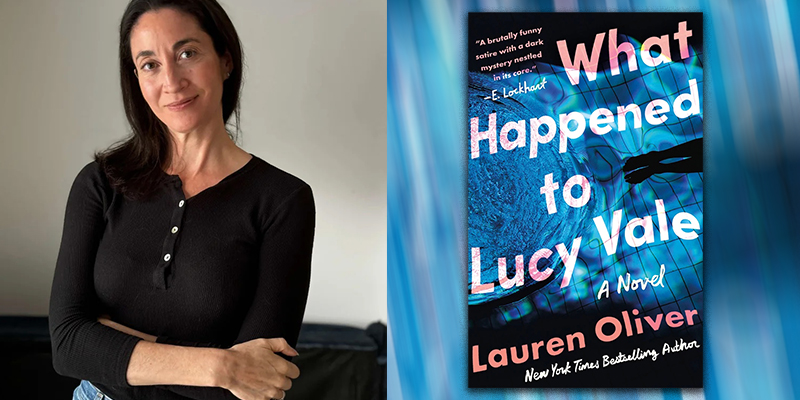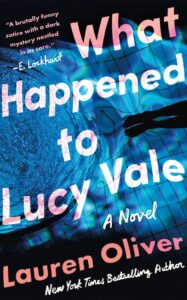The literary landscape has long grappled with the complexities of the collective “we” point of view. I have always been obsessed with this narrative perspective, which in its best forms (Then We Came to the End, by Joshua Ferris; The Virgin Suicides, by Jeffrey Eugenides) seems to absorb the reader, implicating us in the group.
A narrative voice that embodies a group consciousness, and functions as a modern-day Greek Chorus, offers unique opportunities for thematic depth and communal perspective. But it wasn’t until I tried to tackle this perspective myself—by animating a group of high school students who serve as one of the two key narrative POVs in my new novel, What Happened to Lucy Vale—that I fully understood its challenges.
How does a writer imbue a unified “we” with the organic fluidity of individual thought without the whole thing devolving into an implausible, faceless entity? On the flip side, how could I evoke the intimacy of shared secrets, and the dynamic give-and-take of collective experience, without “cheating”, and essentially slipping into third-person POV? For What Happened to Lucy ValeE, this question became a persistent narrative block, and one of the main reasons that I was stuck for several years, endlessly writing and rewriting the same two sections. I redefined the group, shrinking it from an entire high school class to a group of students loosely linked by their position in the social hierarchy. Even then, I couldn’t figure out how their “we” would become defined; how individual interactions might coalesce into a group identity; and how this group identity itself would become both the catalyst to and complicator of the events in the novel.
As I wrote and revised, rewrote and discarded, I found myself fantasizing about a solution that would operate in the world of my book like a private Twitter (or rather, X): a place where the gossip, whispers, speculation, and group-consensus that characterize adolescence could be mapped onto the page; a way to define a “we” that could realistically possess the same information.
Then I found Discord.
Discord is, essentially, a platform designed for real-time, collective interaction. But much like the tech platform of my dreams, it’s de-centralized. Anyone can start a Discord server; often, these are grouped around shared interests, such as fandoms. But I have known people who use Discords to share information and exchange memes with a chosen set of friends, to group chat and group video. In this sense, Discord is like the fascinating offspring of a group text thread and a private or restricted social network.
Finally, I knew how to define my “we”: as the roughly thirty-sex members of a Discord server accessible only to select members of a certain high school class.
[T]he difficulty of the collective “we” stems from its paradoxical nature.See, the difficulty of the collective “we” stems from its paradoxical nature. While it promises a panoramic view of events and a unified emotional resonance, it risks sacrificing the very elements that make individual characters compelling: distinct voice, personal motivation, and the nuanced progression of thought. Traditional narrative often relies on internal monologues or direct dialogue between named characters to convey the intricate dance of human interaction. A collective “we,” however, must achieve this through a singular, plural voice. The challenge intensifies when this “we” is meant to gossip, share secrets, and collectively experience events. How does a single narrative consciousness convey the rapid-fire exchange of whispers, the branching paths of speculation, or the simultaneous processing of a shared trauma, without becoming a cacophony of indistinguishable voices or an omniscient, detached observer? The narrative felt perpetually stuck, a knot of voices that lacked a clear, organic channel for expression.
But by localizing my “we” on Discord, these problems went away. Since Discord facilitates real-time chat through text, voice, and video, organized into thematic “channels” within larger “servers,” I could justifiably give the collective voice instant access to the same information and model the branching narratives and asides that characterize gossip as it travels. Even better, since Discord is a community platform, where individual users contribute to an unfolding dialogue, I could also define individuals within the “we”, whose personalities and presence were slowly defined both by their contributions to the group-chat and the way that “we” defined them. The rapid-fire exchanges in a general chat, the focused discussions in specific channels, and the sidebar whispers in private messages all contributed to a shared sense of presence and evolving understanding among participants—each of whom, at the same time, began to get an articulated and distinct personality. There was Alex Spinnaker, the conspiracy theorist of the group; and Skyler Matthews, the true crime podcast queen; and Olivia Howard, who lived on a commune that was maybe a cult. Discord gave me a living, breathing example of how a group could collectively experience, react, and shape events, all while maintaining a sense of individual contribution within the larger whole.
In Lucy Vale, it was important that the “we” not just exist to narrate events, but to collectively experience them, with their shared reactions and evolving understanding actively driving the plot forward. Discord demonstrates how a group consciousness can be both a narrator and a participant, its collective perspective shaped by the very events it recounts, and subsequent events shaped in turn by that collective perspective, the beliefs formed and fomented in a digital bubble. This dynamic interaction, where the “we” was not merely observing but actively engaging in and being shaped by the unfolding drama, was crucial for the element of implication, a large theme of the book, where the collective becomes entangled in the consequences of their shared actions and observations.
Beyond the specific application to What Happened to Lucy Vale, this intersection of modern digital communication and narrative craft offers broader insights into the evolving nature of storytelling, I believe. Platforms like Discord are not merely tools for social interaction; they are living laboratories of collective consciousness. They demonstrate how individuals contribute to, and are shaped by, a larger group identity, and how information, emotion, and agency can flow through a collective. For writers grappling with non-traditional points of view, these digital spaces provide a rich, observable blueprint for depicting the complexities of shared experience, distributed knowledge, and collective action. They force us to reconsider what constitutes a “voice.”
***

















